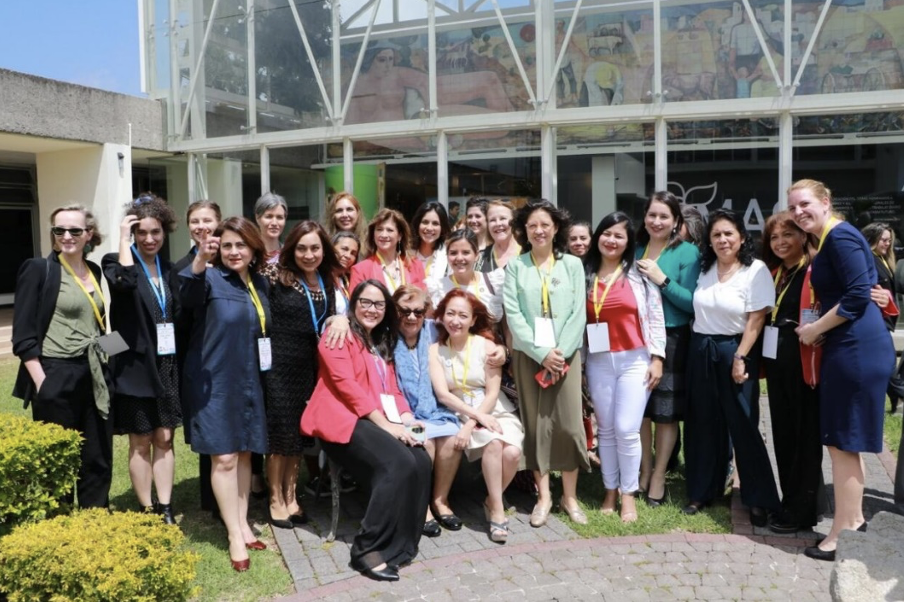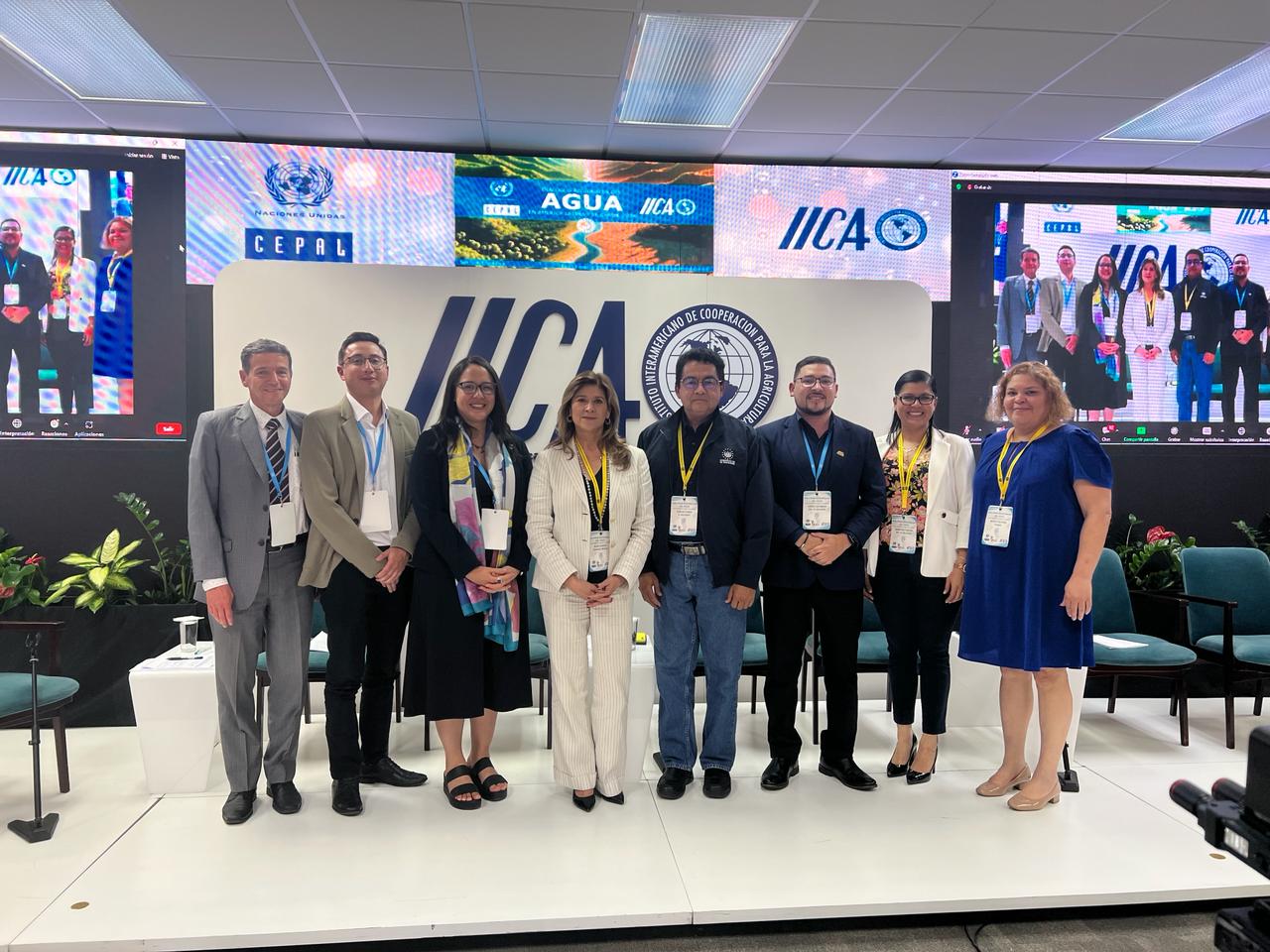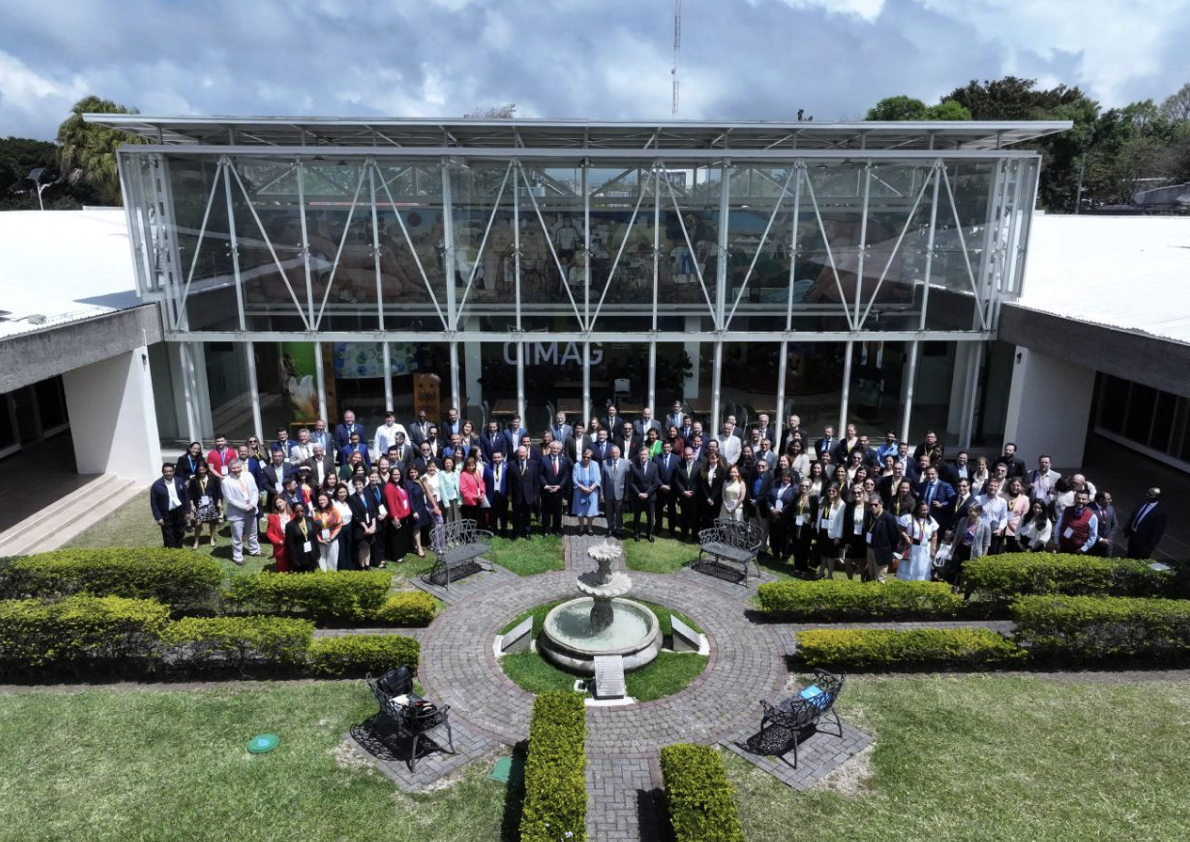Session 3 "Transboundary Waters: Management, Cooperation and Peace" - Regional Water Dialogues for Latin America and the Caribbean 2024
Work area(s)
Topic(s)
ECLAC’s Regional Water Dialogues in Latin America and the Caribbean 2024 included a session on “Transboundary Waters: Management, Cooperation and Peace” co-organised by the Water Convention (UNECE), the Organisation of American States, and the Inter-American Development Bank. The session was a call to strengthen water cooperation in the region, with the aim to enhance water security and prevent conflict. By showcasing different experiences and perspectives from countries and basin organizations, participants explored the needs for and the benefits of cooperation at various scales and across sectors, with a special focus on institutional and legal instruments available, such as the UN Water Convention.

Latin America and the Caribbean is a region blessed with abundant freshwater resources. International basins account for around 70% of the total and provide livelihoods for approximately 40% of the region’s population. The importance of these resources cannot be overstated as they support ecosystems of global relevance, such as those in the Amazon River basin. An increasing vulnerability to climate change, and persistent challenges in ensuring universal access to water and sanitation, are threatening water security with impacts on health, agriculture, and energy production. Droughts are becoming more frequent and persistent, and water quality issues are widespread. These issues affect disproportionately populations living in remote regions where governance is weaker. In this context, transboundary cooperation is increasingly key to water security, resilience and peace, and governments are increasing their commitments to improve it.
The IV Edition of the Regional Water Dialogues in Latin America and the Caribbean 2024, organized by ECLAC, provide a high-level ministerial space to promote good practices and drive the achievement of SDG 6 in the region. It included a number of sessions focused on the priority areas identified in the Regional Action Agenda for Water, among which “Transboundary Waters: Management, Cooperation and Peace”, which was co-organised by the Water Convention (UNECE), the Organisation of American States (OAS), and the Inter-American Development Bank (IADB).
The session was opened by Ms Doris Gutiérrez, Vice President de Honduras, who called for collective action to ensure water for all, stressing the importance of empowering users, and particularly rural communities and women. Her speech was followed by Ms Janaina Tewaney, Foreign Minister of Panama, who highlighted the importance of committing to transboundary cooperation at the political level, exemplified by Panama’s accession to the UN Water Convention in 2023, and called for its wider uptake in the region.
The high-level panel, moderated by Andres Sanchez from OAS, included the interventions of Mr Gerardo Amarilla, Vice-Minister of Environment of Uruguay, who illustrated the ongoing efforts to improve cooperation on groundwater in the Guarani aquifer, and René Mateo, Vice-Minister of Soils and Water in the Dominican Republic, who focused on the ongoing tensions with Haiti and the importance of re-establishing a dialogue starting from water and the principles of international law. A key message from the panel was that given the increasing pressures on water, cooperation ceases to be an option, and it becomes a necessity for sustainable development.
The technical panel was introduced by Mr Sergio Campos, Head of Water and Sanitation at the IADB, who stressed that transboundary cooperation lies at the basis of water security.in the region, and that policy decisions and green projects need to be science-based. Mr Pedro Pablo Silva from the Ministry of Foreign Affairs of Chile focused his intervention on the principles of international environmental law and Chile’s commitments to uphold it. Mr Fernando Cisneros, from the Amazon Cooperation Treaty Organization, talked about the experience of OTCA in coordinating the water directors of all riparian countries to catalyze development and develop joint protocols. Ms Yarid Guevara from the Ministry of Environment of Panama, focused on the importance of the UN Water Convention as a global platform for sharing knowledge, build capacity on key issues, and access financing for the Sixaola basin (shared with Costa Rica) and all other shared basins in the country. Ms Liseth Hernandez, Secretaria Ejecutiva Trinacional, Plan Trifinio, explained how transboundary Cooperation Is driving rural development in the region of Trifinio, involving NGOs, privates, and communities.
Asked about the starting point to boost transboundary cooperation, the panelists highlighted: transboundary environmental impact assessments, which procedures could be better reflect climate change impacts; the use of modern technology like satellite imagery, and related capacity building in water institutions; the smooth exchange of information across countries and across institutions (i.e. between basin and country level); and a shared political vision towards territorial development across the borders.
The session was closed by Ms Francesca Bernardini from UNECE who, summarizing the session, stressed the multiple benefits of transboundary cooperation, from conflict prevention and peace building to the fostering of development and integration of border areas, and the mobilization of financial resources for investments. She concluded highlighting the UN Water Convention as a key instrument to enable cooperation on the ground and achieve these benefits.
Related content

Session 7 "Opportunities for the Circular Economy in the Sanitation Sector – Towards a Roadmap for LAC" - Regional Water Dialogues for Latin America and the Caribbean 2024
Session 7 of the 2024 Regional Water Dialogues addressed the "Opportunities for the Circular Economy in the Sanitation Sector", with the aim of presenting a roadmap that transforms public policies…

Session 1 "Water, Agriculture, and Ecosystems" - Regional Water Dialogues for Latin America and the Caribbean 2024
Session 1 "Water, Agriculture, and Ecosystems" of the 2024 Regional Water Dialogues highlighted the critical interdependence between sustainable water management, efficient agriculture, and ecosystem…

Session 6 "Water Security, Climate Resilience, and ROSA Experiences" - Regional Water Dialogues for Latin America and the Caribbean 2024
Session 6 of the 2024 Regional Water Dialogues, focused on "Water Security and Climate Resilience: Contributions and Experiences for the Water Sustainability Network and Observatory (ROSA),"…

Session 2 "Water and Productive Development" - Regional Water Dialogues for Latin America and the Caribbean 2024
Session 2 "Water and Productive Development" of the 2024 Regional Water Dialogues delved into the interplay between water management, energy, and sustainable development. It stressed the urgency of…

IV Edition of the Regional Water Dialogues for Latin America and the Caribbean: Forging Alliances for Action
From March 11th till the 13th of 2024, the IV Edition of the Regional Water Dialogues for Latin America and the Caribbean was held, organized by the Economic Commission for Latin America and the…